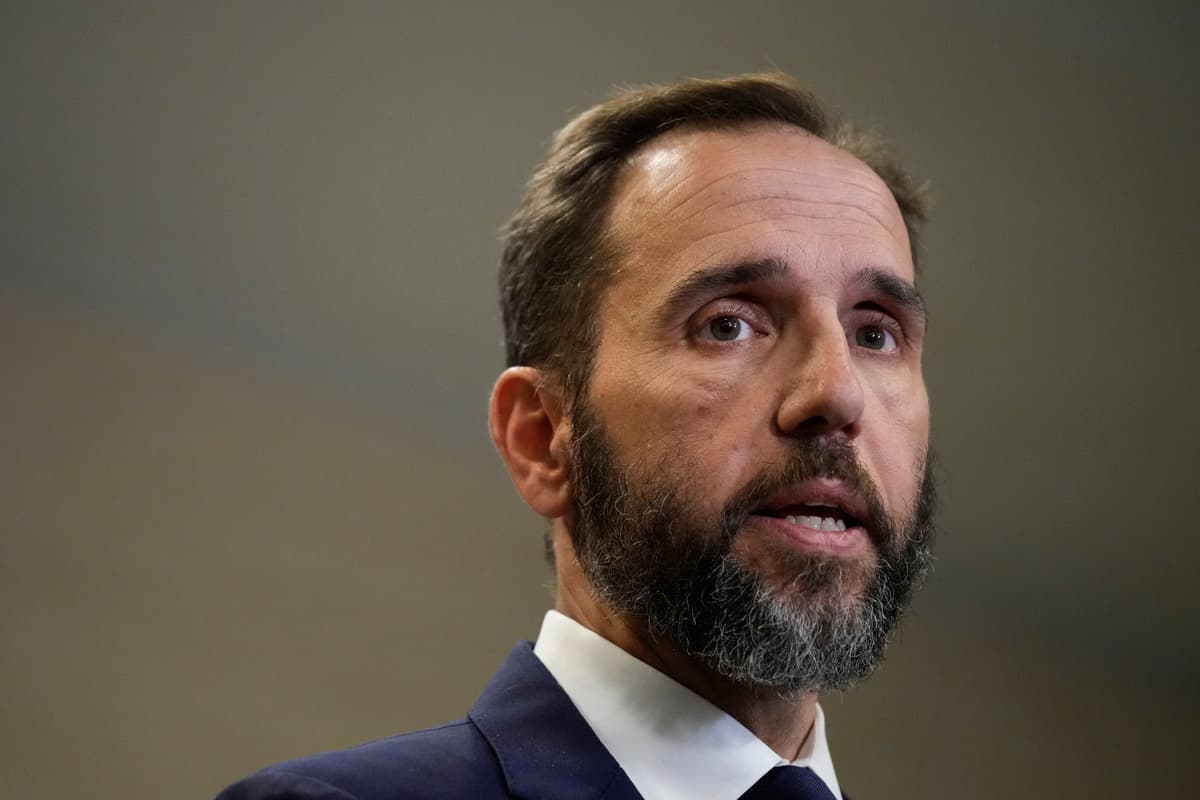Jack Smith Appeals Dismissal of Mar-a-Lago Case Against Trump — but Does Not Ask for Judge Cannon’s Removal
The special counsel appears to have one eye on the possibility that the issue of his appointment could reach the Supreme Court.

Special Counsel Jack Smith’s response to Judge Aileen Cannon’s dismissal of his Mar-a-Lago case against President Trump is a request for the United States Court of Appeals for the 11th Circuit to reverse the Florida jurist. He does not, though, ask for her to be recused from the case.
Judge Cannon, appointed to the bench by Trump in 2020, found that Mr. Smith’s appointment by Attorney General violated the Constitution because the erstwhile war crimes prosecutor was not named by the president and confirmed by the Senate. She found that Mr. Garland’s misstep irremediably marred the case.
The special counsel, in an 81-page filing, seeks to paint Judge Cannon’s decision as alien to law and practice. He writes that her decision is “at odds with widespread and long-standing appointment practices” and in conflict with “an otherwise unbroken course of decisions, including by the Supreme Court.”
The government’s position is that Mr. Garland possesses the “power to appoint inferior officers and assign specific matters to attorneys such as the Special Counsel.” The 11th Circuit will review Mr. Smith’s appeal de novo, meaning without extending any deference to Judge Cannon’s disqualification decision. The special counsel contends the ruling “lacks merit.”
The Appointments Clause ordains that superior officers require nomination by the president and confirmation by the Senate, but that “Congress may by Law vest the Appointment of such inferior Officers, as they think proper, in the President alone, in the Courts of Law, or in the Heads of Departments.” Judge Cannon conceded that Mr. Smith was an inferior officer, but found that there was no law that vested Mr. Garland with the authority to appoint him.
Mr. Smith, in seeking to combat that interpretation of history and precedent, looks to United States v. Nixon, where the Supreme Court seemed to endorse the notion that the attorney general could appoint subordinate attorneys. The court there wrote that “Congress has vested in the Attorney General the power to conduct the criminal litigation of the United States Government. It has also vested in him the power to appoint subordinate officers to assist him in the discharge of his duties”
Judge Cannon did not ignore this precedent, but she did rule that it was non-binding, a mere “prefatory, stage-setting paragraph” that lacks the power of precedent. Mr. Smith, though, reasons that if the “Attorney General lacked authority to appoint the Special Prosecutor, the regulation empowering that prosecutor to represent the sovereign interests of the United States in litigation would have had no force.” Mr. Garland this month took to television to vent that Judge Cannon had made a “basic mistake about the law.”
The Mar-a-Lago case, which comprises 40 criminal charges against the 45th president for retaining classified documents at his Palm Beach manse, was widely seen as the strongest of the four criminal prosecutions arrayed against Trump. Judge Cannon evinced skepticism of the government from the start, appointing a special master to supervise the collection of evidence. That decision was overruled by the 11th Circuit, who wrote that her ruling would “violate bedrock separation-of-powers limitations.”
If the 11th Circuit overrules Judge Cannon again, the case will return to her courtroom for further proceedings. There is no trial date set, as the litigation has become bogged down in disputes over jury instructions and especially the handling of the evidence that forms the ballast of Mr. Smith’s case. The judge also has questioned the government’s reliance on the memoranda of one of Trump’s attorneys, Evan Corcoran. Before dismissing the charges, she indicated that she wants to deliberate on whether the use of those materials as evidence violates attorney-client privilege.
In what could be read as a signal to the Supreme Court should the case reach the Nine, Mr. Smith quotes a law review article written by Justice Brett Kavanaugh before he acceded to the bench, that seems to endorse the “deeply rooted tradition of appointing an outside prosecutor to run particular federal investigations.”
Mr. Smith could be responding to a comment that justice made during oral arguments in the January 6 one when he called Morrison v. Olson, which endorsed the predecessor to the special counsel, “one of the Court’s biggest mistakes.” The court’s senior justice, Clarence Thomas, appears to agree with Judge Cannon. He ventured that Mr. Smith’s “prosecution may violate our constitutional structure.”

